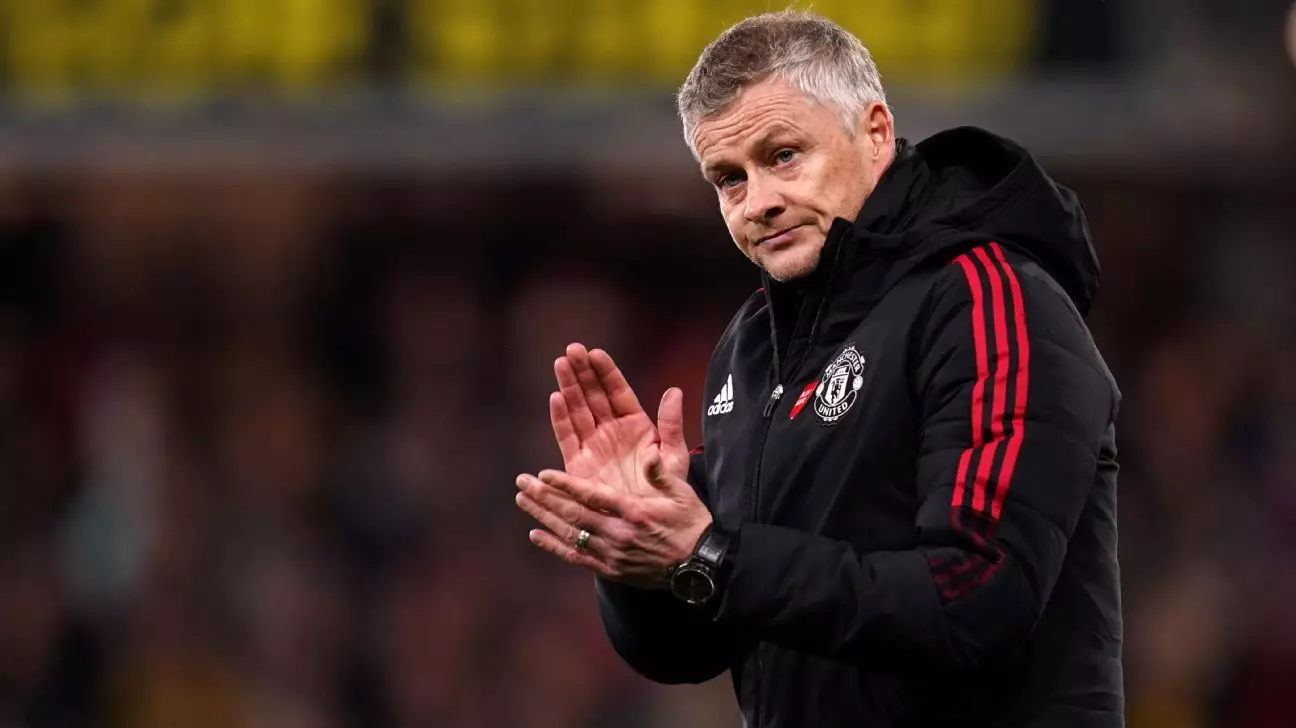Ole Gunnar Solskjaer’s tenure at Manchester United remains a contentious chapter in the club’s storied history. Initially stepping in as interim manager in December 2018, Solskjaer was hailed for his ability to galvanize a team shaken by José Mourinho’s departure. His appointment was marked by an exhilarating run of form that rekindled hopes among the fans. However, despite moments of brilliance, particularly a second-place finish in the 2020-2021 season, the lack of silverware ultimately defined his time in charge. The culmination of his tenure was marred by a series of disheartening results, including a humiliating defeat to Liverpool, which ultimately led to his dismissal in November 2021.
Since leaving Manchester United, Solskjaer has refrained from taking up any managerial roles, instead serving as a technical observer for UEFA. Despite his absence from the managerial scene, he remains a figure of interest among supporters and pundits alike, a sentiment he has revived with his recent comments. When posed with the hypothetical question about returning to Old Trafford, Solskjaer quipped that he would “say yes every day of the week.” This statement reflects not just his undying affection for the club but also a strategic acknowledgment of the prevailing uncertainty in the managerial position at United.
The current incumbent, Erik ten Hag, faces mounting pressure after a rocky start this season. With just three wins in eight games, the call for patience from Ten Hag contrasts sharply with Solskjaer’s vocal willingness to reengage with the club. In Solskjaer’s view, the complexities of managing Manchester United are dictated by the club’s evolving dynamics and the challenges associated with a young squad.
Beyond the prospect of rejoining Manchester United, Solskjaer has also expressed interest in potentially managing the Norwegian national team. As Ståle Solbakken’s tenure is expected to conclude after the 2026 World Cup, Solskjaer sees an opportunity to step into this role with great pride. “I am a proud Norwegian,” he conveyed, highlighting his nationalistic sentiments that could spur him back into management.
Solskjaer’s eventual engagement in international football could prove advantageous, leveraging his extensive experience at a high-profile club to nurture younger talents on the international stage. The emphasis on player development is a critical aspect of modern coaching, and Solskjaer’s insights could provide a fresh outlook for the national team.
Ole Gunnar Solskjaer’s legacy at Manchester United is undeniably complex, characterized by highs and lows that many managers would envy and despise in equal measure. While his affection for the club is evident, the realities of management and the expectations associated with such a prestigious role weigh heavily. As the footballing landscape remains fluid, with managerial positions changing hands frequently, Solskjaer’s readiness for a potential return may align with the club’s strategic vision. Nonetheless, whether at Old Trafford or with the Norwegian national team, Solskjaer’s next managerial chapter promises to be compelling, as he seeks to carve out a legacy of his own in a world that often seems unyielding.

